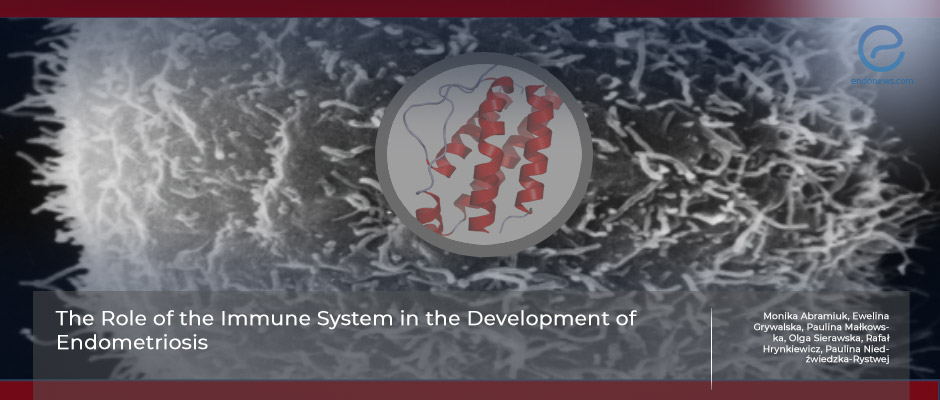T-cell-targeted immunotherapy and immune checkpoint inhibitors for the treatment of endometriosis
Oct 18, 2022
We are in need of more research on the role of immunity in endometriosis
Key Points
Highlights:
- It is estimated that up to 10% of women of reproductive age may have endometriosis which is not only a local disease but an ailment with systemic consequences.
- Though it is well-accepted that immune factors play a key role in the disease process, relatively less research has been conducted in this regard.
Importance:
- New research horizons may open the route to the use of T-cell-targeted immunotherapy or the administration of immune checkpoint inhibitors as valuable treatment methods for endometriosis.
What's done here:
- This is a comprehensive review of what we have learned from various research projects on the role of the immune system as a whole in the pathogenesis and evolution of endometriosis.
Key results:
- Neutrophils, macrophages, NK cells, and dendritic cells, all have special roles in the angiogenesis, growth, and invasion of endometriotic cells.
- Immune molecules like cytokines and defensins all affect the endometriosis environment.
- The levels of immune checkpoint inhibitors are observed to be lower in endometriosis patients when compared to healthy controls.
Lay Summary
Dr. Monika Abraimuk and colleagues from Poland published their review on "the importance of immunity in endometriosis" in a recent issue of the medical journal “Cellular Signaling”.
A great challenge in contemporary medical issues is endometriosis which still lacks a full scientific understanding of the disease process and thus currently searching for effective therapies.
The scientific database yields information on the involvement of immune cells in the pathogenesis of endometriosis, namely neutrophils and peritoneal macrophages along with chemicals aiding in angiogenesis and endometriotic cell growth and invasion. In addition, peritoneal macrophages and natural killer cells in endometriosis possess limited ability in eliminating endometrial cells in the peritoneal milieu.
Excessive cytokine secretion has been repeatedly emphasized in endometriosis. These chemotactic cytokines are involved in the recruitment of macrophages and T cells, mediating the inflammatory response in endometriosis. Immune response cells in the microenvironment of endometriosis, as well as their relationship to the different stages, phenotypes, and symptoms of endometriosis are still not well understood. The main culprit lies in the dilemma of how the resulting defects in immune “surveillance” in the altered microenvironment of endometriosis affect other autologous tissues.
Patients with endometriosis are more prone to autoimmune disorders like SLE, Sjögren’s syndrome, rheumatoid arthritis, multiple sclerosis, and various allergies.
Current views are increasing to regard endometriosis as an autoimmune disease, and immune cells, such as neutrophils, macrophages, and natural killer cells along with dendritic cells, promote angiogenesis, growth, and invasion of endometriotic cells. Immune cells secrete cytokines and defensin affecting the endometriosis milieu. Immune checkpoint inhibitors should be responsible for controlling the immune response, and levels observed in endometriosis patients differ from those in healthy patients.
Unfortunately, scientific research has revealed only the tip of the iceberg in exploring the definitive role of immunity in endometriosis. In-depth studies are needed to determine the exact mechanisms of disease pathogenesis and, in the near future, may allow the use of T-cell-targeted immunotherapy or the administration of immune checkpoint inhibitors in endometriosis treatments.
Research Source: https://pubmed.ncbi.nlm.nih.gov/35805112/
endometriosis immune system cytokines immunotherapy

